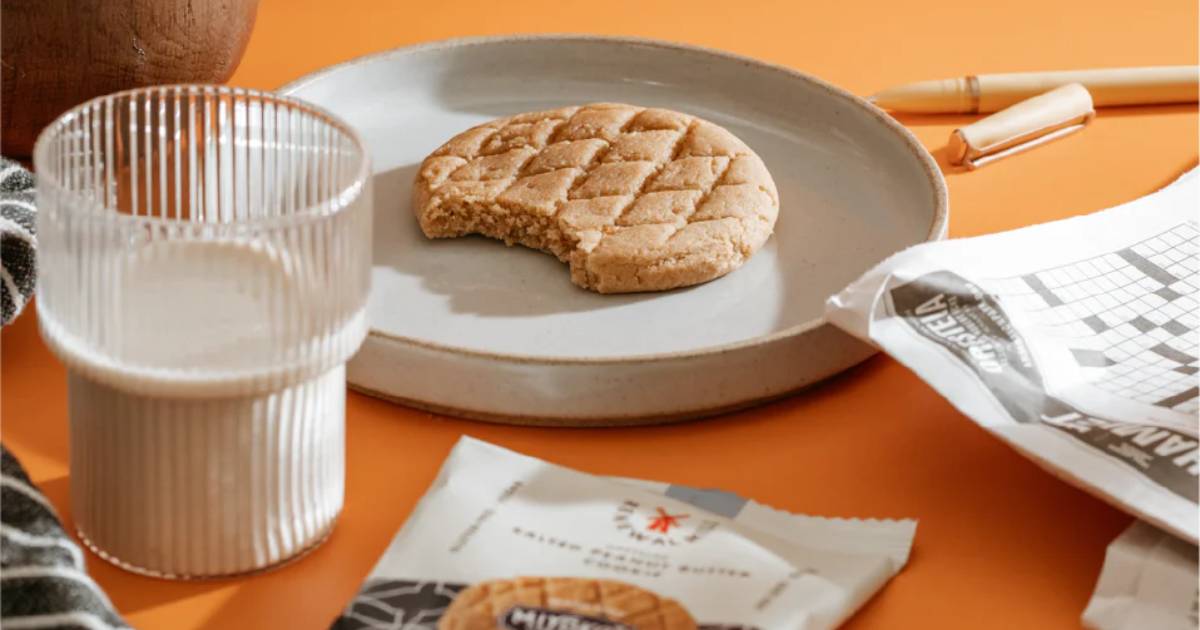Specialty Foods Show Appetite for Licensing

As the range of specialty foods and categories continues to grow, the opportunities for brand licensing are also increasing.
Many of the suppliers at the Summer Fancy Food Show in New York this week were promoting non-licensed brand products. But, at the same time, these companies were seeking to extend brand licensing in new directions—including into trending categories like non-alcoholic drinks and upcycled food.
For example, the Upcycled Food Association (along about eight suppliers) took booth space at the event for the first time to promote products ranging from the Spare Food Co.’s cucumber and lime tonic that’s based on whey remnants from yogurt production to Renewal Mill’s vegan salted peanut butter cookies that are produced using material left over from the manufacturing of Miyokos Creamery’s vegan butter. And there’s so-called “functional soda” like Olipop, which is expected to cross $200 million in annual sales this year through 20,000 stores, including 7-Eleven. The drink features nine grams of fiber and prebiotics and is designed to improve “gut health” or the balance between good and bad bacteria in the digestive system.
“Six years ago, if you told me we would be selling food and drinks made from upcycled materials I wouldn’t have thought” there would be a market for it, said Jeff Turnas, SVP for Global Culinary at Whole Foods. “But you are starting to see more and more of it, and we are even starting to use it in our product development and the recipes we create.”
Another growing trend at the show was non-alcohol drinks, Turnas said. The category’s growing presence at Summer Fancy Food Show makes sense, as retailers like Total Wine & More—which has 249 stores—now have an entire section dedicated to the category in response to growing sales of products like Athletic Brewing Co.’s non-alcohol beer and Fauxmosa, a non-alcoholic mimosa drink. And Walmart recently hired a buyer for the category and plans to launch an “adult drinks” section in its stores starting in Q1 2024, industry executives said.
“The challenge for Olipop and beverages like it is the premium price point right now during a time of inflation,” Matthew Barry of Euromonitor said. “There is certainly a group of consumers who can afford to buy high-priced sodas regularly, but that’s a limited subset of the population.”
Outside of non-alcoholic beverages and upcycled snacks, the show saw several brands with well-established presence in licensing extended their lines.
For example, barbeque sauce supplier Rufus Teague licensed Interstate Bakeries for sunflower seeds while 7-Eleven launched YouTuber James Donaldson’s Feastable MrBeast Milk Chocolate bars part of an effort to employ influencers to help boost store traffic, said Matthew Bunevich, Manager for 7-11 Ventures and Business Development.
BWI International, which is a distributor of Guinness merchandise in the U.S., recently added seasonings (including one for Shepherd’s Pie), while White Coffee Co. launched Bailey’s Irish Cream ground and K-Cup coffee in replacing Kraft Heinz as the licensee. It introduced Mars (M&Ms, Twix, Snickers) coffee and hot chocolate. Jelly Belly is revamping its assortment of licensed products in cutting back on some licenses and introducing its first Boba Milk Tea-flavored jellybeans at the show alongside an assortment of Harry Potter products. And Fisher’s Popcorn a new plant in Delaware in 2024 to add production for its popcorn sold under McCormick’s Old Bay brand, said Russell Hall, National Sales Manager at Fisher’s, which has had the license for five years.
“Sometimes licenses cost a little bit more and you have to back away” during times of high inflation, said Brian Perkins, Direct Sales Representative at Jelly Belly. “When it’s the right time again, we will be back in. The problem is you have to shrink the bags and offer less to offset the rising costs.”




